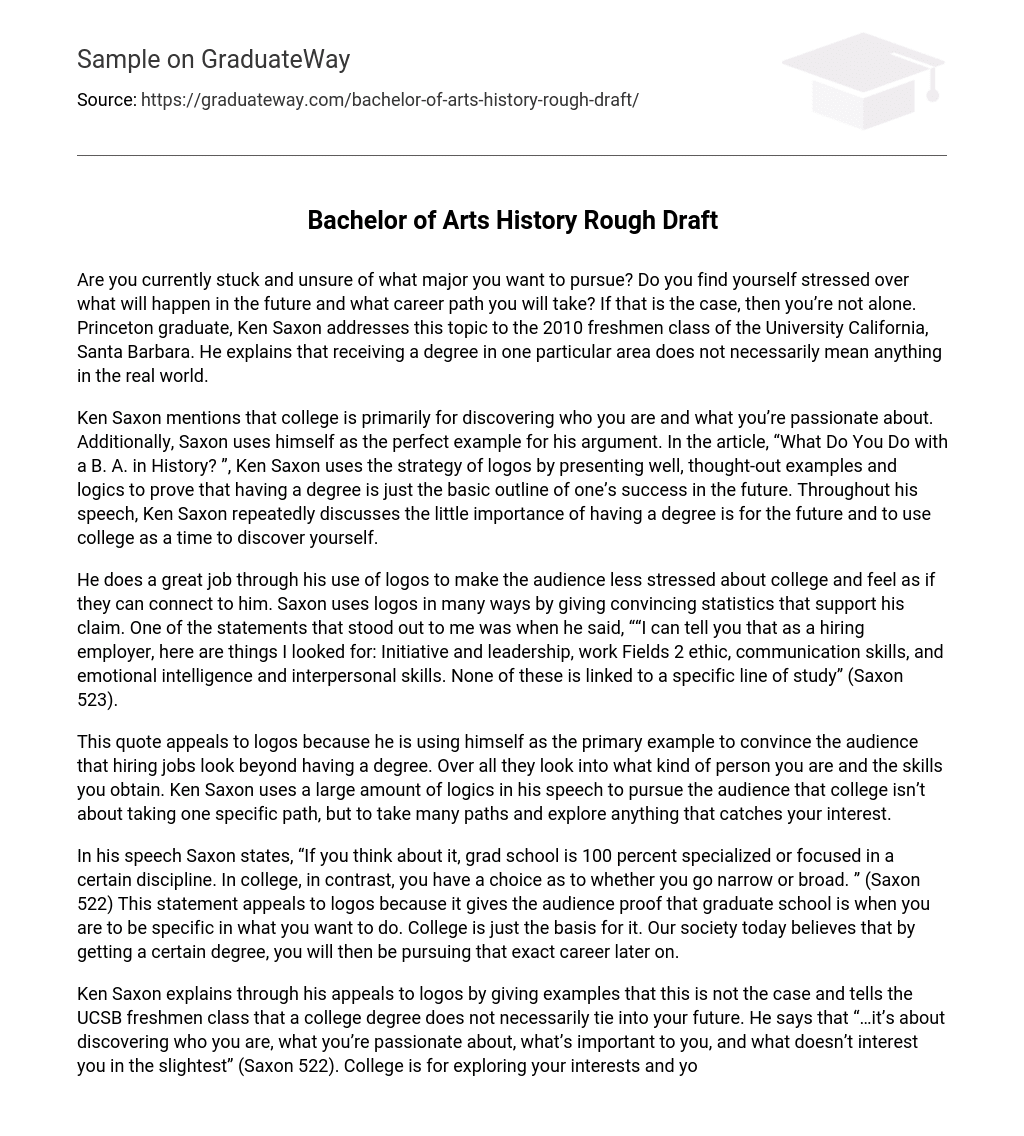If you are feeling stuck and unsure about which major to choose, and if you are stressed about your future career path, know that you are not alone. In a speech to the 2010 freshmen class at the University of California, Santa Barbara, Ken Saxon, a Princeton graduate, emphasized this issue. He highlighted that obtaining a degree in a particular field may not hold significant significance in the real world.
Ken Saxon emphasizes that college is primarily about self-discovery and finding one’s passions. He supports his argument by using himself as a prime example. In his article titled “What Do You Do with a B. A. in History?”, Saxon employs the strategy of logos by providing well-thought-out examples and logical reasoning to demonstrate that a degree is merely a foundation for future success. Throughout his discourse, Saxon consistently emphasizes the limited significance of a degree in shaping one’s future and encourages using college as an opportunity for self-exploration.
Saxon effectively uses logos to alleviate college-related stress and establish a connection with his audience. He employs persuasive statistics to support his argument, such as stating, “As a hiring employer, here are qualities I sought: Initiative, leadership, work ethic, communication skills, emotional intelligence, and interpersonal skills – none tied to a specific field of study” (Saxon 523).
The text argues that Ken Saxon’s quote applies to logos as he uses himself as a prominent example to persuade the audience that employers consider more than just having a degree. They also consider personal qualities and acquired skills. Saxon employs a significant amount of logical reasoning in his speech to convince the audience that college education is not solely about following one specific path, but about exploring multiple paths and pursuing diverse interests.
According to Saxon, graduate school is entirely specialized in a specific discipline, whereas college offers the option of a narrow or broad focus. This argument appeals to logos, as it provides evidence that graduate school requires specialization. Society today believes that obtaining a particular degree leads to a career in that field.
Ken Saxon employs examples to contend that acquiring a college degree does not definitively shape one’s future. In his address to the UCSB freshmen, he emphasizes that college encompasses more than just education; it entails self-exploration. According to Saxon, college is an avenue for discovering one’s identity, passions, values, and disinterests (Saxon 522). It provides the opportunity to delve into personal growth and interests while allowing everything else to naturally align.





